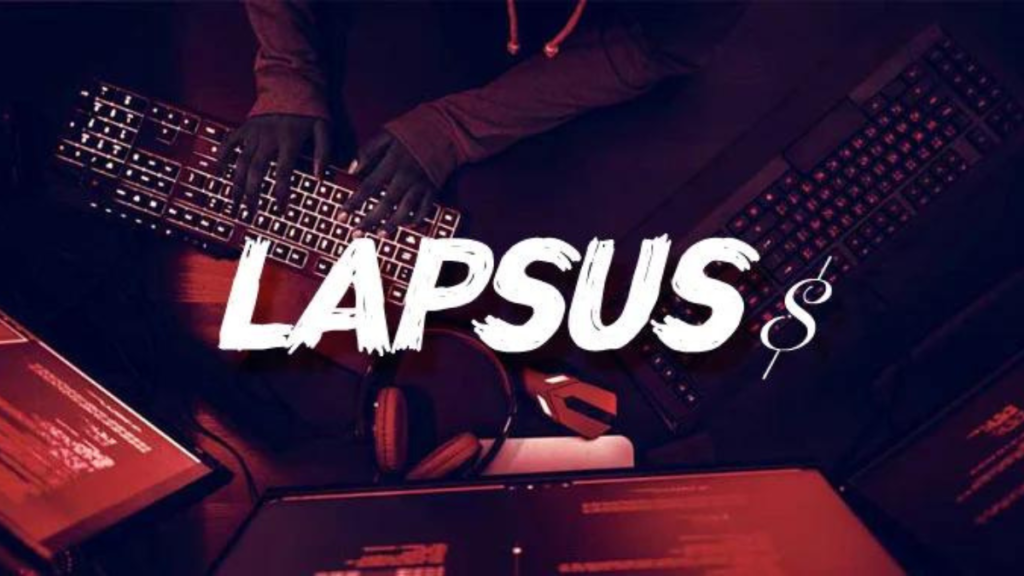GTA 6, the highly anticipated sequel in one of the most beloved gaming franchises of all time, has been making headlines once again. But this time, it’s not for its jaw-dropping graphics or immersive gameplay. No, this time the spotlight is on a notorious group known as Lapsus$, who managed to breach the impenetrable walls of GTA 6 and wreak havoc upon unsuspecting players.
Intrigued? Well, you should be! Lapsus$ is no ordinary hacker group; they are masters of their craft, leaving no digital stone unturned in their quest to exploit even the tiniest vulnerabilities. And now, these audacious cybercriminals have received an unprecedented punishment that will keep them confined indefinitely – but not behind bars.
Curious about how Lapsus$ pulled off this daring feat? Wondering why such a unique punishment was chosen for them? Eager to explore the impact hacking has on the gaming industry as a whole? Then buckle up and join us as we delve into the world of Lapsus$ and unravel this captivating tale. Trust us when we say that you won’t want to miss a single detail! So grab your virtual weapons and let’s dive right in!
What is Lapsus$ and how did they hack into GTA 6?
Lapsus$ is not your average hacking group. They are a notorious collective of skilled individuals who have made a name for themselves by infiltrating some of the most secure systems in the world. Their latest conquest? The highly anticipated game, GTA 6.
But how did they manage to breach the impenetrable walls of Rockstar Games’ masterpiece? Well, Lapsus$ took advantage of a vulnerability in the game’s online infrastructure. Through an intricate network of exploits and backdoors, they gained unauthorized access to the inner workings of GTA 6.
Their methods were sophisticated and their knowledge unparalleled. They meticulously studied every aspect of the game’s code, uncovering weaknesses that others could only dream of finding. With this information at their fingertips, Lapsus$ was able to manipulate gameplay mechanics, create unlimited resources, and even teleport players across virtual worlds.
Their actions sent shockwaves through both the gaming community and the industry as a whole. It exposed flaws in security protocols and raised questions about the safety measures implemented by major developers. The impact was significant – millions were affected by Lapsus$’s exploits.
However, let us not forget that hacking is illegal – it disrupts legitimate gameplay experiences and undermines years of hard work put into developing these games. That’s why Lapsus$ received an indefinite hospital order as punishment for their actions.
While some may argue that this punishment seems extreme, it serves as a strong deterrent against future hackers seeking fame or fortune through illicit means. By placing them under psychiatric care indefinitely rather than traditional incarceration methods, authorities hope to address any underlying psychological issues that may have contributed to their criminal activities.
The gaming industry has learned valuable lessons from incidents like these – cybersecurity must be prioritized now more than ever before. Developers are investing heavily in fortifying their systems with robust encryption algorithms and intrusion detection mechanisms to prevent similar breaches in the future.
Indefinite Hospital Order for the Hacker
The consequences for the GTA 6 hacker, known as Lapsus$, have been severe and far-reaching. After successfully infiltrating the game’s system and causing havoc within its virtual world, Lapsus$ has now received an indefinite hospital order.
This unique punishment reflects the seriousness of Lapsus$’s actions and serves as a reminder that hacking into gaming platforms is not just a harmless prank. It highlights how hacking can have real-world consequences for both individuals and communities.
The decision to place Lapsus$ under an indefinite hospital order was chosen because it recognizes the need for rehabilitation rather than traditional imprisonment. By placing him in a controlled environment where he can receive specialized mental health support, there is hope that he will be able to address any underlying issues that led to his hacking activities.
This approach also acknowledges the potential link between mental health issues and cybercrime. Rather than simply punishing Lapsus$, society is recognizing that there may be deeper factors at play which should be addressed in order to prevent future incidents like this from occurring.
The impact of hacking on the gaming industry cannot be overstated. Not only does it disrupt gameplay experiences for millions of players around the world but it also undermines trust in online gaming platforms. Players need reassurance that their personal information and progress within games are secure from malicious actors like Lapsus$.
To prevent future hacks in the gaming world, developers must invest heavily in security measures such as robust encryption protocols, continuous monitoring systems, and timely patching of vulnerabilities. Additionally, educating gamers about best practices for protecting their accounts can go a long way in minimizing risks.
The indefinite hospital order handed down to Lapsus$ sends a clear message: hacking into gaming platforms comes with serious consequences. While this punishment seeks to rehabilitate rather than punish, it serves as a stark reminder of how important cybersecurity is within the gaming industry. Moving forward, preventative measures must be taken to safeguard the online gaming experience for all.
Why was this punishment chosen?
First and foremost, it is crucial to understand the gravity of hacking in the gaming industry. Hacking not only disrupts fair play but also compromises player security and privacy. The consequences can be far-reaching, affecting both individual gamers and game developers alike.
In the case of Lapsus$, their hack into GTA 6 caused significant disruptions within the game environment, leading to countless frustrated players. This disruption had a direct impact on Rockstar Games’ reputation and financial bottom line.
The choice of an indefinite hospital order as punishment may seem unconventional at first glance, given that hospitals are typically associated with medical treatment rather than legal penalties. However, this decision highlights a unique approach to addressing mental health issues that may have contributed to Lapsus$’s actions.
By placing Lapsus$ under an indefinite hospital order, authorities aim to provide them with necessary psychiatric evaluation and treatment. It recognizes that hacking behavior could stem from underlying psychological factors or disorders that require professional intervention.
This alternative form of punishment serves multiple purposes: rehabilitation for the offender while protecting society from potential future cyber threats posed by individuals with similar tendencies.
It demonstrates a commitment towards understanding and addressing root causes rather than solely focusing on punitive measures. By offering help instead of retribution, there is hope for rehabilitation and eventual reintegration into society for offenders like Lapsus$.
While some may question such leniency towards hackers who cause chaos in online communities, it opens up discussions about how we handle cybercrime cases moving forward. Should we prioritize punishment or seek proactive ways to prevent future hacks?
Ultimately though, whether this particular approach will prove effective remains uncertain – only time will tell if an indefinite hospital order can truly address both mental health concerns and deter future hacking incidents in the gaming world.
The Impact of Hacking on the Gaming Industry
Hacking has become an unfortunate reality in the gaming industry, with countless incidents reported over the years. These malicious acts not only disrupt gameplay but also have far-reaching consequences for both players and developers alike.
One of the most significant impacts of hacking is the erosion of trust within the gaming community. When players encounter hackers who exploit vulnerabilities or create unfair advantages, it undermines their confidence in the game’s integrity. This can lead to frustration, decreased player engagement, and ultimately a decline in revenue for developers.
Hacking poses a serious threat to online multiplayer games. In these environments, fair competition and balanced gameplay are crucial for maintaining a healthy player base. When hackers gain unauthorized access or manipulate game mechanics, it disrupts this delicate balance and creates an uneven playing field.
From a financial perspective, hacking can result in substantial losses for game developers. The illegal distribution of cracked versions or stolen intellectual property cuts into their profits and hampers future development efforts. Additionally, when hacks allow players to obtain premium content without paying for it, it devalues in-game purchases and reduces revenue streams.
Beyond these immediate effects on individual games and companies, hacking also tarnishes the reputation of the entire gaming industry as a whole. It reinforces negative stereotypes about gamers being cheaters and discourages potential new players from joining communities they perceive as dishonest.
To combat these challenges posed by hackers, game developers must invest heavily in security measures that protect against unauthorized access and cheating techniques. This includes regular updates to patch software vulnerabilities promptly as well as implementing robust anti-cheat systems that detect suspicious activities during gameplay.
Education also plays a vital role in preventing future hacks within the gaming world. By raising awareness among players about potential risks associated with downloading external programs or using cheat codes obtained from dubious sources helps them understand how their actions contribute to perpetuating unethical behavior.
Preventing Future Hacks in the Gaming World
As technology continues to advance, so too do the methods employed by hackers. The gaming industry is no exception, with online games becoming increasingly vulnerable to cyber attacks. It’s crucial for game developers and publishers to prioritize security measures in order to protect their players and ensure a fair gaming experience.
One of the key steps in preventing future hacks is implementing strong encryption protocols. By encrypting data exchanges between players and servers, it becomes significantly more difficult for hackers to intercept sensitive information or manipulate gameplay. Regular updates and patches are also essential, as they often address vulnerabilities that hackers may exploit.
Additionally, enhancing user authentication processes can greatly reduce the risk of unauthorized access. Two-factor authentication has proven effective in many industries and could be implemented within gaming platforms as an added layer of security.
Education is another vital aspect of prevention. Players should be informed about potential risks such as phishing scams or malicious downloads disguised as game mods. Providing clear guidelines on how to spot suspicious activities or report hacking attempts can empower gamers to take action against cyber threats.
Collaboration among game developers, cybersecurity experts, and law enforcement agencies is crucial when it comes to combating hacking incidents. Sharing information about emerging threats and best practices for defense can help create a united front against hackers.
Conclusion
The case of Lapsus$, the GTA 6 hacker, has shed light on the serious consequences of cybercrimes in the gaming industry. The indefinite hospital order handed down to Lapsus$ serves as a stark reminder that hacking into games is not only illegal but can also have severe repercussions.
This incident highlights the need for stricter preventive measures and better cybersecurity protocols within the gaming world. Game developers must invest in robust security systems to protect their creations from hackers like Lapsus$. Regular updates and patches should be implemented to address any vulnerabilities and prevent unauthorized access.







